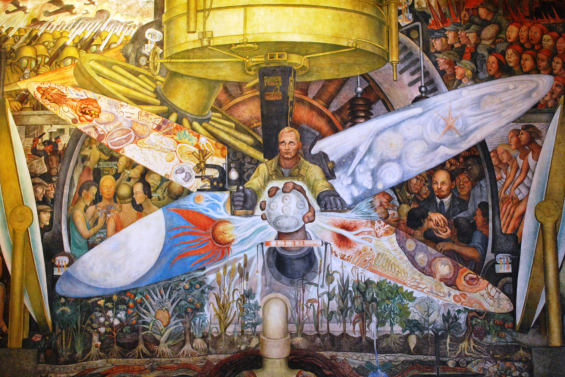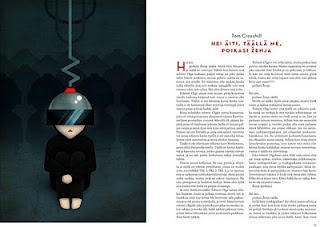
 The SFFaudio Podcast #229 – Jesse, Jenny, Tamahome, and Paul Weimer talk about NEW RELEASES and RECENT ARRIVALS.
The SFFaudio Podcast #229 – Jesse, Jenny, Tamahome, and Paul Weimer talk about NEW RELEASES and RECENT ARRIVALS.
Talked about on today’s show:
Tam is back, Haruki Murakami, Kafka On The Shore, magic realism, Japan, kafkaesque, surrealism, 1Q84, The Wind-Up Bird Chronicle, pretty books, Chip Kidd, rice paper, Requiem by Ken Scholes, Julie Davis, Tor, magic staff, earth in the future, The Steel Remains, “oh crap this is the future”, Gene Wolfe, Happy Hour In Hell by Tad Williams, Bobby Dollar, The Dirty Streets Of Heaven, urban fantasy, demoness tangling, Lankhmar, urban fantasy => a certain kind of fantasy, noir/detective => hardboiled, Otherland, Luke Burrage, cats, “the Walter Jon Williams effect”, MaddAddam by Margaret Atwood, mostly dystopian, Oryx and Crake, quasi-humans, The Year Of The Flood, genetic engineering, racoon-pigs, storytelling mode, listening at 2X speed, competitive debate, Margaret Atwood’s preview of a review of Doctor Sleep by Stephen King, a sequel to The Shining, Atwood’s weakness for horror and terror, “because he’s Stephen King”, Will Patton, “don’t judge me people”, is there a stigma in literary circles?, Zoomer magazine’s profile of Margaret Atwood as “Queen Of The Nerds”, Twitter, tweetalong?, a genuine literary reputation, poetry, Orson Scott Card, does it matter?, dystopia, Dreamscape Audiobooks, The Night Lands by William Hope Hodgson, The House On The Borderlands, a very daunting book, big and ambitious, Lovecraftian?, The Scarlet Plague by Jack London, Earth Abides, class, mainstream post-apocalypse, Alas Babylon by Pat Frank, a toothless grandfather, Drew Ariana, Goslings by J.D. Beresford, plague talk!, The Children Of Men, Y: The Last Man, the newspapers, HiLoBooks, “Radium Age” Science Fiction, Gweek, The Road To Science Fiction, classicism, sexism, barbarism, The Iron Heel, numeracy and literacy, the size of the universe or the age of the Earth, Simon & Schuster Audio, Rivers by Michael Farris Smith, Jenny loves destroying the earth, wiping the slate clean, Fallout, Tobias Buckell, Interrupt by Jeff Carlson, Hunter Davis, Brilliance Audio, simultaneously published with print, Neanderthals, the pronunciations, Robert J. Sawyer, Discover Magazine, literally means not literally anymore, it’s figuratively raining cats and dogs, The Darwin Elevator by Jason M. Hough, Julie Davis, Simon Vance, science fiction thrillers, John Scalzi, plague, space elevator, working for the enemy?, a compressed schedule, writing 2X, a first novel!, military SF, “we’ve complinished everything”, Reflex by Steven Gould, Jumper, the physical audiobook industry (is it mostly for libraries), Paperback Audio, William Dufris, The Stars My Destination by Alfred Bester, innate teleportation, the Jumper movie, Portal, post-humans, Nightcrawler without the bad smell, BAMFless, The Clockwork Man by E.V. Odle, Ralph Lister, no introductions makes Jesse sad, are there audio previews?, Affliction: An Anita Blake, Vampire Hunter Novel (#22) by Laurell K. Hamilton, The Lord of Opium (Matteo Alacran #2) by Nancy Farmer, The Midnight Heir (Bane Chronicles #4) by Cassandra Clare and Sara Rees Brennan, building on The Hunger Games, Untouchable (Immortals After Dark #8) by Kresley Cole, Robert Petkoff, The Hunt or Capture, the reality TV version of The Hunger Games in The Hunger Games would be very boring, The Truman Show would be a very boring show to actually watch, in fiction the TV shows are without narrative, TVtropes show with an show, Hamlet, William Shakespeare did meta 500 years ago, epic traditional fantasy, traditional epic fantasy marriage, Crown Thief (Tales Of Easie Damasco #2) by David Tallerman, Giant Thief, sword and sorcery, golem or gollum?, Witch Wraith: The Dark Legacy of Shannara by Terry Brooks, Rosalyn Landor, , “Tolkien with the serial numbers filed off”, “its all about the elfstones”, The Lord Of The Rings, questing, trilogy vs. endless series, the Wikipedia entry for Shannara, a magical cataclysm, “a richer broader universe”, Revolution, S.M. Stirling, Robert Jordan, the Dragonlance series, Daniel Abraham, subverting the quest trope, The Eye Of The World, George R.R. Martin, gathering forces and subverting expectations, children’s fantasy, Roald Dahl, Matilda is read by Kate Winslet!, the musical of Matilda, The Twits, Charlie And The Chocolate Factory, Charlie And The Great Glass Elevator Futurama, Fry and the Slurm factory, Gene Wilder, great character names!, Dickensian names, The BFG, biography, crime, thriller, JFK’s Last Hundred Days: The Transformation Of A Man And The Emergence Of A Great President, Death Angel (Alexandra Cooper #15) by Linda Fairstein, The Kill List by Frederick Forsyth, George Guidall, “now it’s personal”, Penguin Audio, adding heat urgency of character development, adding a baby, Breaking Bad babies, the invisible baby or worse the artificially aging child syndrome, Mork & Mindy, Shaman by Kim Stanley Robinson, 30,000 years ago, prehistorical romance, hard edged scientific, Clan Of The Cavebear, Monsters Of The Earth by David Drake, Seanan McGuire, Soldier by Harlan Ellison, The Terminator, The Outer Limits, James Cameron, Philip Wylie, Tomorrow!, John Wyndham, When Worlds Collide, The Answer, nuclear war with angels, The End Of The Dream, The Murderer Invisible.

Posted by Jesse Willis

 Reading, Short And Deep #198
Reading, Short And Deep #198 Reading, Short and Deep Podcast #198 - Beyond The Frame by Maria Moravsky
[ 0:32:20 | 31 MB ]
Hide Player
|
Play in Popup |
Download
Reading, Short and Deep Podcast #198 - Beyond The Frame by Maria Moravsky
[ 0:32:20 | 31 MB ]
Hide Player
|
Play in Popup |
Download







